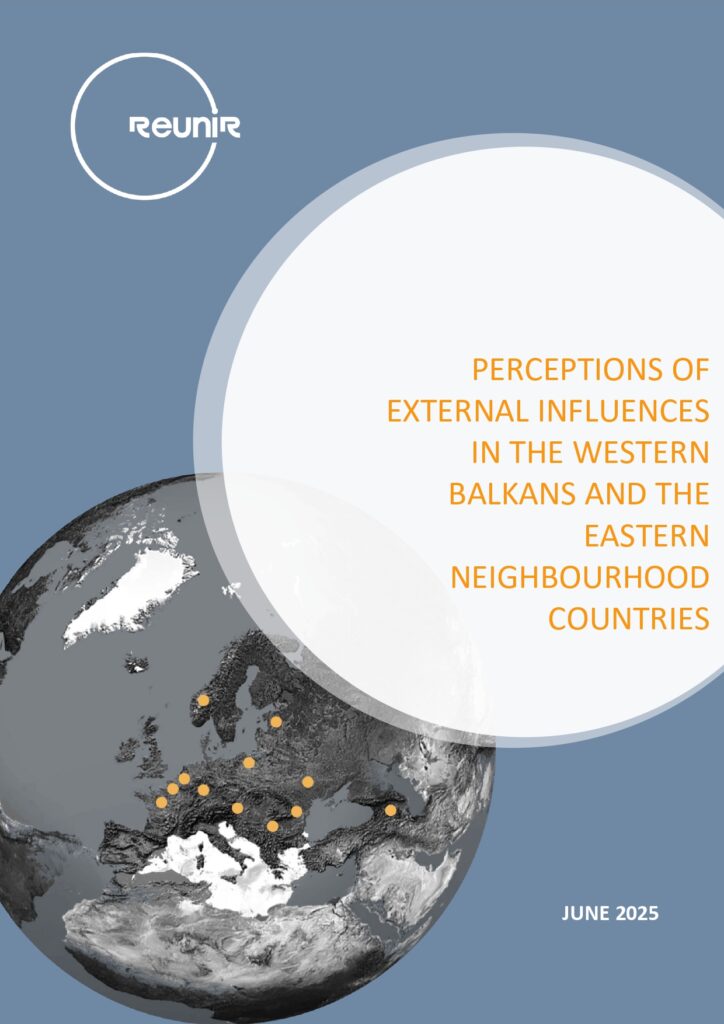Introduction to the Country Reports
EDITORS: Lura Pollozhani, Florian Bieber
The REUNIR project aims to analyse and assess threats and opportunities for engagement with the countries of the Western Balkans (Albania, Bosnia and Herzegovina, Montenegro, North Macedonia, Kosovo, and Serbia) and the Eastern Neighbourhood (Georgia, Moldova, and Ukraine) on their path towards EU
integration. The project also seeks to build future scenarios based on the data it will gather throughout itsimplementation. Within this framework, Work Package 6 is dedicated to looking at the issue of external actors and their influence from the bottom up. As part of this task, researchers of the different country teams first conducted a mapping exercise of the perceptions of citizens and actors in the countries of the WB and EN on the EU and other external actors (Pollozhani et al., 2024). The data for the mapping exercise relied on the methodology of various surveys and the data contained therein. With this report the aim is to go deeper and get a better understanding from experts and citizens in alignment with the REUNIR methodology.
Methodology
The country reports analyse the perceptions that experts and citizens in both regions have of the threats and opportunities for their countries and the perceptions that they have of external actors. The data gathering process involved at least 10 semi-structured elite interviews with experts per country. The experts came from various fields including academia, civil society, state institutions, the private sector, political parties, and other relevant bodies. In addition, the country researchers organized two focus group discussions per country, whereby one was held with experts, whereas another one was held with citizens. In the case of Bosnia and Herzegovina two focus group discussions with citizens were held to obtain a more representative sample. In total REUNIR researchers spoke with 293 interlocutors (see table 1 for details), of which 116 were women and 177 were men. The interviews and focus group discussions were carried out between February and March 2025. They are anonymised and the interviewees are identified by their individual codes, to maintain clarity and anonymity.
In the case of Georgia and Serbia we had limitation due to ongoing protests on the ground and a boycott from civil society organisations of state institutions. In order to mitigate this, external researchers contacted state institutions so that their point of view could also be included, to limited success. Due to the environment in Georgia, we have also kept the affiliations of the interlocutors anonymous in order to not create a potentially unsafe environment for them. In the case of Ukraine, all interviews and focus group discussions were organised online in order to ensure the safety of both researchers and interlocutors, following a previously developed risk assessment and response plan.

